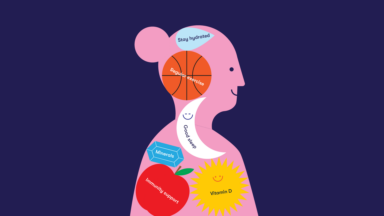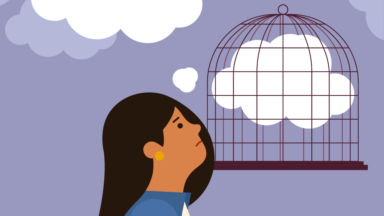
Sleep is a fundamental aspect of our lives, essential for our physical and mental well-being. However, for those grappling with insomnia, a good night’s sleep can often feel out of reach. The good news is that there are effective treatments available to help you regain control of your sleep, and one of the most recommended and scientifically proven methods is Cognitive Behavioural Therapy for Insomnia, or CBT-I. In this blog post, we’ll explore what CBT-I is, how it works, and why it’s considered one of the most powerful tools for treating insomnia.
Understanding Insomnia
Before delving into treatment options, it’s essential to understand what insomnia is. Insomnia is a sleep disorder characterised by difficulty falling asleep, staying asleep, or waking up too early and not being able to return to sleep. It can lead to daytime fatigue, irritability, and a range of health issues.
In some cases, if you are suffering with insomnia, your GP may recommend medications to help you sleep. It is important to remember that these medications are not a long term solution for sleep, and may come with side effects such as dry mouth, dizziness, headaches, nausea, and in some cases, addiction to the medication itself.
Because of this, Cognitive Behavioural Therapy for Insomnia, or CBT-I, is widely regarded as the gold standard in the treatment of insomnia and is a NICE recommended treatment for insomnia.
Why Choose CBT-I?
Evidence-Based: CBT-I is a well-researched and evidence-based therapy. Numerous studies have demonstrated its effectiveness in improving sleep and long-term outcomes.
Non-Drug: Unlike medications, CBT-I is a non-drug treatment. It focuses on changing the thoughts and behaviours that contribute to insomnia, making it a safe and sustainable option.
Customised Approach: CBT-I is tailored to your specific sleep patterns and habits. It’s not a one-size-fits-all solution but rather a personalised approach to address the root causes of your insomnia.
How CBT-I Works
CBT-I typically involves several components, including:
Sleep Education: You’ll learn about the science of sleep, sleep cycles, and the factors that contribute to insomnia.
Sleep Restriction: This technique involves initially limiting the amount of time you spend in bed to match your actual sleep time. As your sleep improves, the time in bed is gradually increased.
Stimulus Control: CBT-I helps you establish a strong connection between the bed and sleep. It involves creating a sleep-conducive environment and using the bed only for sleep and intimacy.
Cognitive Therapy: You’ll work on identifying and challenging negative thoughts and beliefs about sleep. This can help reduce anxiety and stress related to sleep.
Sleep Hygiene: CBT-I teaches you healthy sleep habits, such as maintaining a consistent sleep schedule, avoiding caffeine and alcohol close to bedtime, and creating a relaxing bedtime routine.
Relaxation Techniques: Learning relaxation exercises, such as progressive muscle relaxation and deep breathing, can help reduce anxiety and promote better sleep.
In summary, insomnia is a common and treatable sleep disorder that can significantly impact your quality of life. Cognitive Behavioural Therapy for Insomnia (CBT-I) is a highly effective and non-drug treatment option that addresses the root causes of insomnia and helps you regain control of your sleep.
If you’re struggling with insomnia, you may benefit from a treatment like Sleepio. Sleepio works with you to develop a personalised insomnia treatment plan, empowering you to challenge negative thought patterns, establish healthy sleep habits, and enjoy restful nights of sleep.

Here’s our latest

How Does The Clock Change Affect Your Body?
Twice a year, we participate in a ritual that affects not only our clocks but also our bodies. Daylight Savings…

How To Sleep Better After Surgery
Undergoing surgery is a significant event that can bring about both relief and anxiety. While you focus on your recovery,…

Sleep After a Stroke: Stroke-Induced Sleep Disorders
Recovering from a stroke is a journey that comes with various challenges, and one of the often overlooked issues is…


